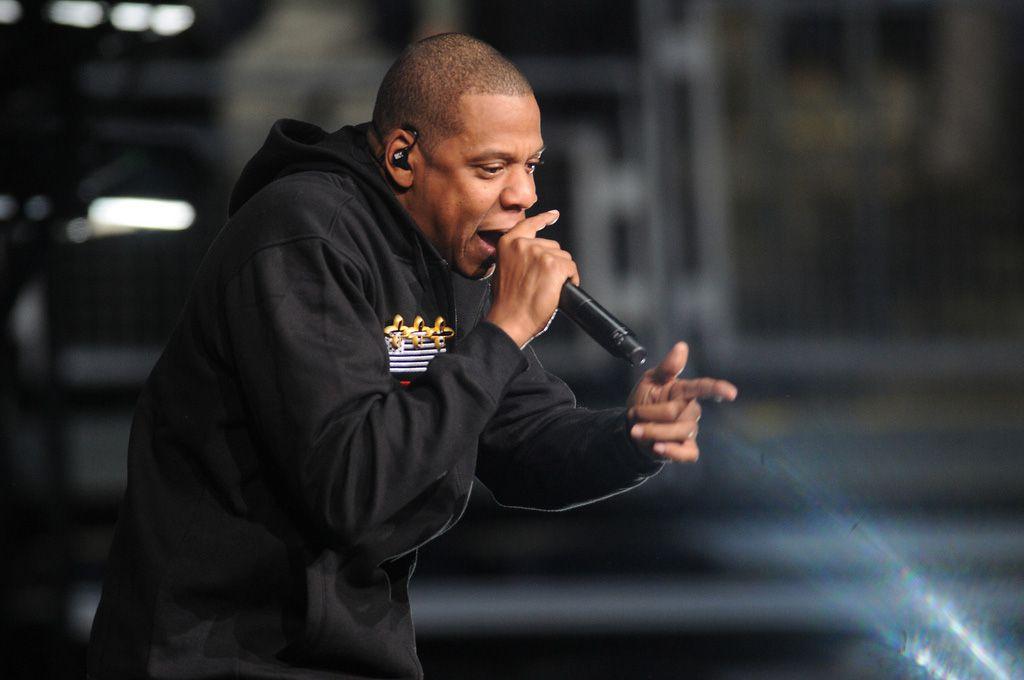On Monday morning, several artists, including Kanye West, Rihanna, Nicki Minaj and Beyoncé, changed their Twitter and Instagram icons to a plain, bright turquoise blue box. They all used the hashtag #TIDALforALL.
Many theories began to crop up on social media, with people predicting everything from a huge collaboration song to a multi-artist album, but TIDAL is actually a music streaming website — just think Spotify.
But TIDAL is different from Spotify in a lot of ways. For one, a majority of TIDAL will be owned by the artists represented on it, whereas streaming platforms such as Spotify usually offer artists less than one cent per play. It will offer an important alternative for artists in a world where Taylor Swift pulled her music from Spotify because “the value of an album” is based on the heart, soul and hard work an artist put into their music. It will also come with a price: $10 a month for a standard subscription and $20 for CD-quality streams.
“This is a platform that’s owned by artists,” Jay Z told The New York Times. “We are treating these people that really care about the music with the utmost respect.”
There are multiple streaming websites that TIDAL will have to compete against, including Google, YouTube and Pandora. Spotify is the biggest competitor with 60 million users worldwide, 15 million of whom use Spotify Premium, which is $5 for students and $10 for non-students. With premium Spotify services being the same as a standard Tidal service, however, it’s hard to imagine a world where all users will switch over.
Jay Z is entering the playing field during a fierce battle over the right to music. Music streaming websites are the industry’s fastest-growing source of revenue, but artists and those with actual morals about the way they download music are not fans of the economic model.
“The challenge is to get everyone to respect music again, to recognize its value,” Jay Z told the Times. “Water is free. Music is $6, but no one wants to pay for music. You should drink free water from the tap — it’s a beautiful thing. And if you want to hear the most beautiful song, then support the artist.”
Tidal will also offer exclusive content that will be available in periods of limited availability. Jay Z is apparently courting new artists aggressively to get them to offer their music on Tidal instead of other platforms, but Spotify spokesman Jonathan Prince told the Times he is not worried about the competition.
“We think it’s good for artists and labels to be on Spotify, because that’s where the music fans are, and we are confident that’s where artists and labels want to be,” he said.
Jay Z, however, insisted that he is not trying to take over the whole market.
“I just want to be an alternative,” he told the Times. “They don’t have to lose for me to win.”
It’s good that Jay Z has a good attitude about TIDAL not being the world’s top new music streaming platform, because we can tell you right now that it probably won’t be. It sounds like just a bad way to deal with a bad situation.
The bad situation in question is the fact that most people just don’t want to pay for music anymore. Jay Z’s way of fixing that is charging people $20 to listen to it. Frankly, nobody is going to do that unless they have strong ethics in terms of music downloads which, if they actually had, we wouldn’t be having this problem in the first place.
TIDAL is a good idea at its core. It gives more control to artists, while giving them more profit and upholding a certain level of musical integrity. But the only thing we can see TIDAL doing is creating a sort of elite, “boutique” music service, which seems unnecessary. Only the people who have money to waste will spend $240 per year on the music of just a few choice artists. Not many people are going to be willing to jump to that price when you could have a Spotify account for free.
This also brings up the question of whether or not free music is actually devaluing music. One could argue that Spotify is good because through it, music listeners can discover new artists who they wouldn’t have discovered in any other way. However, it’s those artists who are the ones most hurt by Spotify’s economic model.
Ultimately, the only absolute way to ensure that an artist will get 100 percent of the profit is to go to their website and buy the album, tickets or merchandise directly off there. TIDAL is hoping to make waves in the economic model of the music downloading industry, but despite its big-name backing, all it’ll likely do is sink.























































































































Miss.B • Apr 1, 2015 at 6:15 am
My son has been performing,writing and producting his own music since he was six. Iam his biggest fan,”his mother”. I support his dream because he is a hard worker ans love for music has never change. I will continue to promote an help me son reach his dream. Whomever is reading this look him up, he is the Next Big Artist. Believe me he is what’s missing from the music industry. A New Change. My one wish for my son is for him to become the music artist I know God wants him to be. Man without a vision will perish. This young man has had his vision since he was five I his hard work and music will never perish. That’s how much I believe in my son.
From a mom who believes in her son.
ADonis King